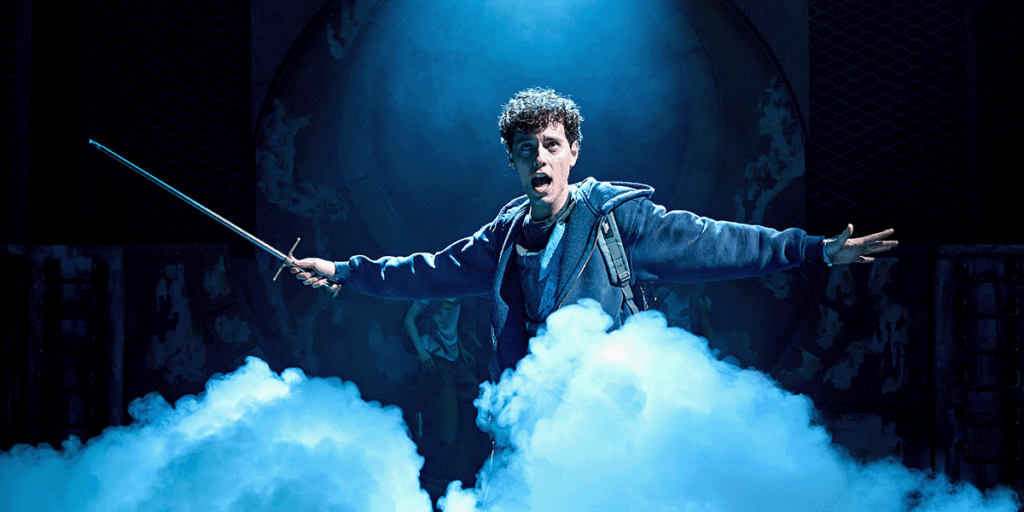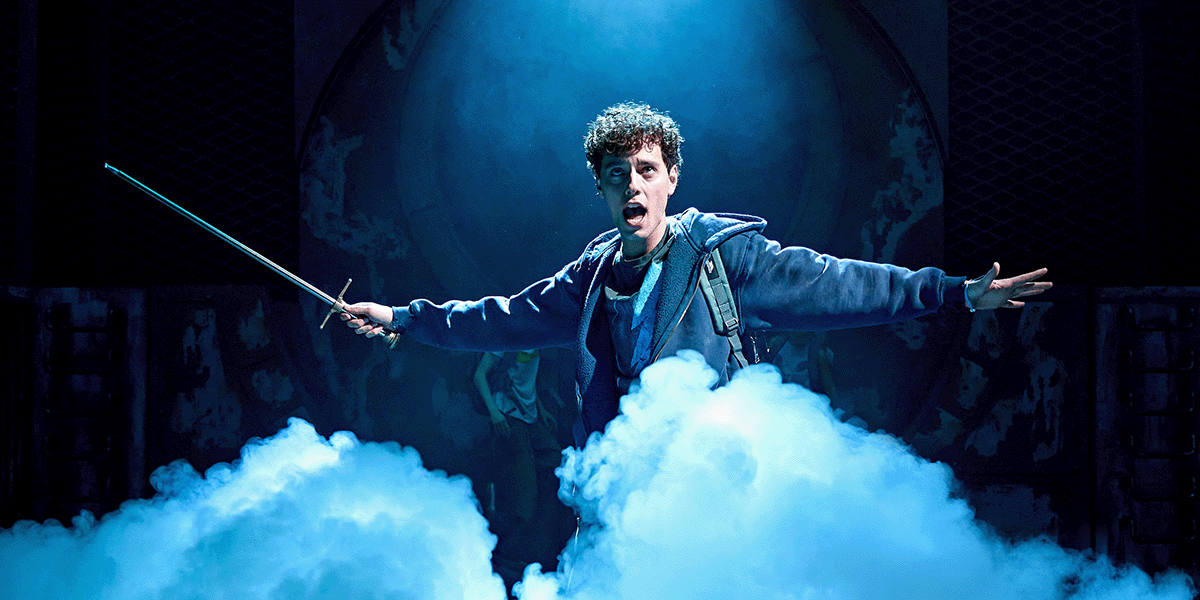
Clarisse La Rue: Unpacking the Complexities of the Lightning Thief’s Daughter of Ares
Clarisse La Rue, a name synonymous with strength, aggression, and a fiery spirit, holds a significant place in the world of Percy Jackson. As the daughter of Ares, the Greek god of war, she embodies the traits often associated with her father. While initially portrayed as an antagonist in The Lightning Thief, her character arc reveals layers of complexity, loyalty, and a hidden capacity for compassion. This article delves into the nuances of Clarisse La Rue, exploring her role in the series, her relationships with other characters, and her evolution from a seemingly one-dimensional bully into a respected and multifaceted leader at Camp Half-Blood.
Early Introduction and Initial Impression
Clarisse La Rue makes her first appearance in The Lightning Thief as a formidable and intimidating figure. She is introduced as a seasoned camper, already well-versed in the ways of Camp Half-Blood and possessing a natural aptitude for combat. Her physical presence is emphasized – strong, muscular, and radiating a sense of power. This initial portrayal establishes her as a force to be reckoned with, and her interactions with Percy Jackson are immediately antagonistic. She embodies the typical bully archetype, relishing in displays of dominance and seemingly deriving pleasure from tormenting younger or less experienced campers.
However, it’s important to consider the context of her behavior. As a daughter of Ares, Clarisse La Rue likely faces immense pressure to live up to her lineage. The expectation to be strong, aggressive, and constantly battle-ready can create a challenging environment, particularly for a young demigod navigating the complexities of adolescence. Her outward aggression may be a defense mechanism, a way to mask insecurities or vulnerabilities that she feels she cannot afford to reveal.
Clarisse’s Relationship with Percy Jackson
The dynamic between Clarisse La Rue and Percy Jackson is central to her character development. Their initial encounters are marked by animosity and conflict. Clarisse, already established as a powerful camper, views Percy as an outsider, an inexperienced newcomer who doesn’t deserve the attention he receives. Their rivalry escalates quickly, culminating in several confrontations, including the infamous capture-the-flag game where Percy inadvertently defeats her using his newfound water powers.
This defeat is a significant turning point for Clarisse. It challenges her perception of herself and forces her to confront her own insecurities. While she initially reacts with anger and resentment, the experience plants the seed for future growth. Throughout the series, their relationship evolves, albeit slowly. While they never become close friends, a grudging respect develops between them. Clarisse begins to recognize Percy’s strength and courage, and Percy, in turn, begins to see beyond her tough exterior.
Their interactions are often characterized by sarcastic banter and subtle challenges, but beneath the surface lies a mutual understanding born from shared experiences and the constant threat posed by the mythological world. They learn to rely on each other in times of crisis, demonstrating a willingness to put aside their personal differences for the greater good. [See also: Percy Jackson’s Growth Throughout the Series]
Clarisse’s Strengths and Weaknesses
Clarisse La Rue’s primary strength lies in her combat prowess. As a daughter of Ares, she possesses exceptional fighting skills, a natural aptitude for weaponry, and an unwavering determination in battle. She is a skilled strategist and a fearless warrior, leading her cabin in numerous battles and proving her worth time and time again. Her physical strength is undeniable, and she is often depicted as a formidable opponent, capable of taking on even the most challenging adversaries.
However, her strengths are also intertwined with her weaknesses. Her aggressive nature and tendency to act impulsively can sometimes cloud her judgment, leading to rash decisions and unnecessary conflicts. She struggles with empathy and often has difficulty understanding or acknowledging the perspectives of others. This can make her appear insensitive and uncaring, even when she doesn’t intend to be. Her pride and stubbornness can also hinder her ability to accept help or admit when she is wrong.
Furthermore, Clarisse La Rue grapples with the pressure of living up to her father’s expectations. The constant need to prove herself can be exhausting, and she often feels the burden of representing Ares in a positive light. This pressure can contribute to her aggressive behavior and her reluctance to show vulnerability. [See also: The Impact of Parental Expectations on Demigods]
Clarisse’s Role in the Larger Narrative
Beyond her individual character arc, Clarisse La Rue plays a crucial role in the larger narrative of the Percy Jackson series. She represents the complexities of war and the challenges of leadership. Her struggles with empathy and her tendency to prioritize strength above all else highlight the potential pitfalls of a purely militaristic mindset. However, her eventual growth and her willingness to fight for what is right demonstrate the potential for even the most hardened individuals to evolve and embrace compassion.
In The Sea of Monsters, Clarisse is given a significant quest to retrieve the Golden Fleece. This mission allows her to demonstrate her leadership skills and her unwavering determination. Despite facing numerous obstacles and challenges, she perseveres and ultimately succeeds in her mission, proving her worth to both Camp Half-Blood and her father, Ares. This quest is a pivotal moment in her character development, as it forces her to confront her own insecurities and to rely on others for support. [See also: The Significance of Quests in the Percy Jackson Series]
Clarisse’s Evolution and Growth
Throughout the Percy Jackson series, Clarisse La Rue undergoes a significant transformation. While she initially appears as a one-dimensional bully, she gradually reveals layers of complexity and compassion. Her experiences in battle, her interactions with Percy Jackson and other campers, and her quest to retrieve the Golden Fleece all contribute to her growth as a character.
She learns to temper her aggression with empathy, to value teamwork and cooperation, and to recognize the importance of fighting for what is right, even when it is difficult. While she never completely sheds her tough exterior, she becomes more open to showing vulnerability and more willing to accept help from others. Her evolution culminates in her leadership role during the Second Titan War, where she demonstrates her courage, her strategic thinking, and her unwavering loyalty to Camp Half-Blood.
Ultimately, Clarisse La Rue emerges as a complex and compelling character, a testament to the power of growth and the potential for even the most hardened individuals to embrace compassion. She represents the challenges of living up to expectations, the importance of finding one’s own path, and the enduring power of friendship and loyalty. Her journey from a seemingly one-dimensional bully to a respected and multifaceted leader makes her one of the most memorable and enduring characters in the Percy Jackson series. Understanding Clarisse La Rue requires looking beyond her initial presentation and appreciating the layers of complexity that define her character. Her strength, her flaws, and her eventual growth make her a compelling figure in the world of Percy Jackson, a reminder that even the fiercest warriors can possess a capacity for compassion and loyalty.
The Enduring Appeal of Clarisse La Rue
The character of Clarisse La Rue continues to resonate with readers for several reasons. Her initial portrayal as a bully provides a relatable antagonist, someone who embodies the insecurities and power dynamics that often exist in adolescent social circles. However, her subsequent development challenges these initial perceptions, revealing a more nuanced and complex individual beneath the surface.
Her struggles with living up to her father’s expectations, her difficulty expressing vulnerability, and her eventual growth into a capable leader all contribute to her relatability. Readers can empathize with her challenges and appreciate her resilience in overcoming them. Furthermore, her unwavering loyalty to Camp Half-Blood and her willingness to fight for what she believes in make her a compelling and inspiring figure. Clarisse La Rue serves as a reminder that strength comes in many forms and that even the most hardened individuals can possess a capacity for compassion and growth. Her enduring appeal lies in her complexity, her relatability, and her ultimately inspiring journey.

